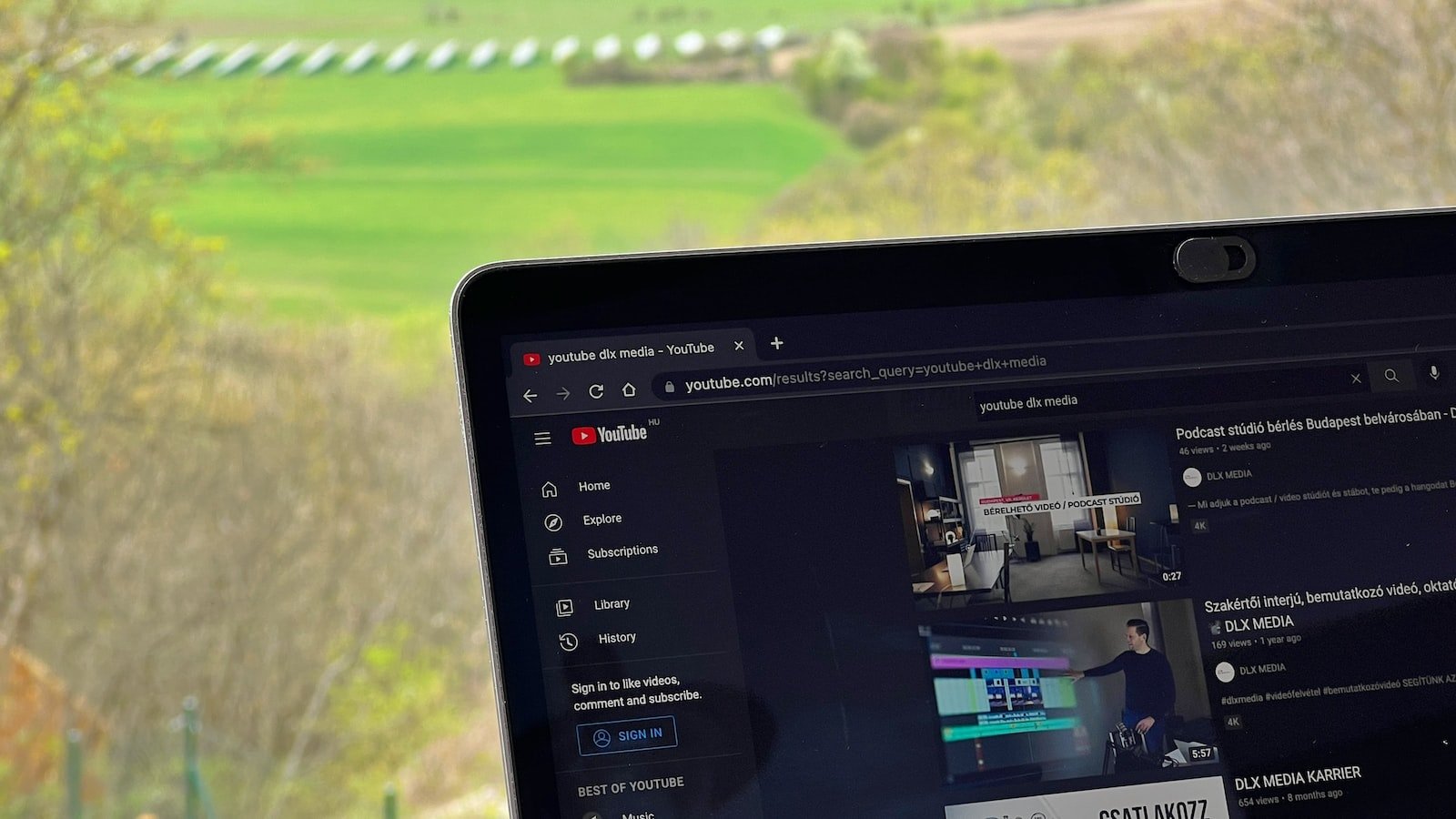Unlocking the secrets to a successful website may seem like a daunting challenge, but fear not, for we have cracked the code! Welcome to an enlightening journey where we unravel the mystery behind SEO-friendly URLs. In this article, we will delve into the intricate world of web development and show you how to create URLs that are not only search engine optimized but also drive traffic to your digital domain. Join us as we explore the art of mastering SEO-friendly URLs and pave the way to a winning website. Prepare to embark on a path that combines creativity and neutrality, revealing the key to online success!
Table of Contents
- The Importance of SEO-Friendly URLs: Boosting Your Website’s Visibility and Performance
- Crafting Effective URLs: Best Practices for Optimized Search Engine Rankings
- Keyword Usage in URLs: Leveraging Strategic and Relevant Keywords for Higher Organic Traffic
- Keeping URLs Clean and Readable: Simplifying Your Website’s Architecture for Enhanced User Experience
- Q&A
- Key Takeaways

The Importance of SEO-Friendly URLs: Boosting Your Website’s Visibility and Performance
Importance of SEO-Friendly URLs: Boosting Your Website’s Visibility and Performance
SEO-friendly URLs play a crucial role in enhancing your website’s visibility and performance. These seemingly ordinary strings of characters can work like magic when it comes to making your website rank higher in search engine results pages (SERPs). But what exactly makes a URL SEO-friendly? Let’s crack the code and explore how mastering SEO-friendly URLs can give your website an edge in the digital realm.
1. Relevance: SEO-friendly URLs should accurately reflect the content of your web pages. Search engines and users should be able to understand what the page is about just by looking at the URL. Compare these two examples: www.example.com/blogpost?id=123 vs. www.example.com/ultimate-guide-to-seo. The second URL tells both search engines and users that the page contains valuable information about SEO, instantly attracting clicks and improving your website’s visibility.
2. Readability: Besides being relevant, SEO-friendly URLs should also be human-readable. A concise and well-structured URL can make a positive impression on users, improving their overall user experience on your website. Consider the following examples: www.example.com/products/brand/product123 or www.example.com/p?=12-3ddc. The first URL provides clear context about the product and its brand, while the second URL appears vague and confusing. By choosing readable URLs, you can boost your website’s credibility and ultimately drive better organic traffic.

Crafting Effective URLs: Best Practices for Optimized Search Engine Rankings
Crafting effective URLs is a crucial step in improving your website’s search engine rankings and driving more organic traffic. By following best practices and mastering SEO-friendly URLs, you can crack the code to a winning website. Here are some tips to help you optimize your URLs like a pro:
1. Keep it concise: Short and sweet URLs are not only easier for users to remember but also for search engines to crawl and index. Aim for URLs that are no longer than 70 characters.
2. Use keywords strategically: Incorporating relevant keywords into your URLs can give a boost to your search engine rankings. However, be cautious and avoid keyword stuffing, as it may lead to penalties from search engines. Opt for natural and meaningful keywords that accurately reflect the content of the page.
3. Utilize hyphens instead of underscores: When separating words in your URLs, use hyphens instead of underscores. Search engines treat hyphens as word separators, while underscores can be misinterpreted as part of the word. For example, ”best-crafting-tips” is more SEO-friendly than “best_crafting_tips.”
4. Avoid unnecessary parameters: Including unnecessary parameters, such as session IDs or tracking codes, in your URLs can lead to duplicate content issues. Keep your URLs clean and concise by removing any unnecessary parameters.
5. Optimize for mobile: With the increasing dominance of mobile browsing, it’s essential to ensure your URLs are optimized for mobile devices. Shorter URLs are especially important for mobile users, as they have limited screen space.
Implementing these best practices for crafting effective URLs will not only improve your website’s search engine rankings but also enhance user experience by providing clear and concise links. Take the time to review and optimize your URLs, and your website will stand out in the digital landscape. Remember, the key is to strike a balance between SEO optimization and usability to create URLs that are both search engine-friendly and user-friendly.
Keyword Usage in URLs: Leveraging Strategic and Relevant Keywords for Higher Organic Traffic
Mastering SEO-friendly URLs for a Winning Website
When it comes to online visibility, every detail counts, and crafting SEO-friendly URLs is no exception. The strategic and relevant use of keywords in your URLs can significantly impact your organic traffic and enhance your website’s overall performance. Let’s dive into the world of keyword usage in URLs and discover how you can crack the code for a winning website.
1. Clarity and Relevance: Your website’s URLs should clearly reflect the content of each page. Including targeted keywords in your URLs can provide search engines with valuable information about your page’s topic, making it more likely to rank higher in relevant searches. For example, instead of using a generic URL like “website.com/blog/article123,” consider incorporating keywords that describe the content, such as “website.com/blog/ultimate-guide-keyword-usage-urls.” This not only enhances the clarity of your URL but also boosts its relevance and searchability.
2. Brevity and Simplicity: Short and concise URLs are not only user-friendly but also search engine-friendly. Avoid lengthy and complex URLs that may confuse both search engines and users. Instead, opt for simplicity. Use hyphens to separate words in your URL, as search engines recognize hyphens as word separators. For instance, a clean URL like “website.com/services/web-design” is not only easy to remember, but it also highlights the relevant keywords, contributing to a better search engine optimization (SEO) outcome.

Keeping URLs Clean and Readable: Simplifying Your Website’s Architecture for Enhanced User Experience
URLs are like roadmaps that guide users and search engines through your website. Just like a well-designed map is easy to navigate and understand, so should your URLs be. Keeping your URLs clean and readable not only enhances the user experience but also improves your website’s search engine optimization (SEO) performance. So, let’s crack the code and master SEO-friendly URLs for a winning website!
One key aspect of keeping URLs clean and readable is to use descriptive and concise words in your URLs. Avoid using long, confusing strings of numbers or generic terms that don’t provide any information about the page’s content. Instead, use keywords that accurately describe the content of the page. For example, if you have a blog post about “Top 10 SEO Tips”, a cleaner and more readable URL would be yourwebsite.com/top-10-seo-tips rather than yourwebsite.com/blog/post12345. This not only helps users instantly understand what the page is about but also gives search engines valuable information for indexing and ranking purposes.
Another important aspect to consider is the use of hyphens rather than underscores or spaces in your URLs. Hyphens not only improve readability but also help search engines better understand the separate words in the URL. For example, a URL like yourwebsite.com/seo-tips is more effective than yourwebsite.com/seo_tips or yourwebsite.com/seotips. Additionally, using lowercase letters instead of uppercase further enhances readability and avoids confusion. Remember, user experience and search engine optimization go hand in hand when it comes to URLs, so keep them clean, concise, and effortlessly readable for website success!
Q&A
Q: What is the key to mastering SEO-friendly URLs for a winning website?
A: Unlocking the code to SEO-friendly URLs is a crucial aspect of achieving a winning website.
Q: Why are SEO-friendly URLs important?
A: SEO-friendly URLs significantly impact a website’s visibility and search engine rankings. They help search engines understand the content and relevance of a webpage, improving its chances of being discovered by a wider audience.
Q: How can I create SEO-friendly URLs?
A: To create SEO-friendly URLs, start by keeping them concise, descriptive, and easy to read. Incorporating relevant keywords and avoiding unnecessary numbers or symbols can also enhance their effectiveness.
Q: Can you explain the concept of “slug” in URL structure?
A: Absolutely! In URL structure, a slug refers to the unique portion of the URL that identifies a specific page or post on a website. It is usually created based on the content’s title and should accurately reflect the page’s topic.
Q: Should I include target keywords in my URLs?
A: Yes, including target keywords in your URLs can boost your website’s SEO. However, it’s important to strike a balance between optimal keyword inclusion and maintaining a natural and user-friendly URL structure.
Q: How can I optimize URLs for readability and user experience?
A: To optimize URLs for readability and user experience, it’s essential to use real words that provide a clear idea of what the page entails. Using hyphens to separate these words will improve readability and ensure users can easily comprehend the URL structure.
Q: Do URL extensions affect SEO?
A: While URL extensions, such as .com or .org, don’t directly affect SEO, they do contribute to user trust and credibility. Choosing a reputable extension can positively influence user behavior and indirectly impact search engine rankings.
Q: Are there any common mistakes to avoid while creating SEO-friendly URLs?
A: Yes, indeed! Some common mistakes to avoid include using dynamic URLs, as they can appear confusing to both search engines and users. Additionally, using excessive parameters, such as session IDs or tracking codes, can complicate your URL structure and harm your SEO efforts.
Q: Can URL redirects impact SEO?
A: URL redirects can impact SEO if not managed correctly. When changing URLs or restructuring a website, it is important to employ proper 301 redirects to inform search engines of the changes. This helps preserve link equity and prevent a negative impact on search rankings.
Q: Should URLs be case-sensitive?
A: URLs are, by default, case-sensitive. However, to avoid any confusion for users, it is best practice to keep URLs entirely lowercase. This ensures a consistent user experience and minimizes the chance of errors due to case sensitivity.
Q: Is it advisable to change existing URLs for SEO purposes?
A: Changing existing URLs solely for SEO purposes should be approached cautiously. If the change is essential, it is vital to implement proper redirects and inform search engines of the modifications to avoid losing any existing SEO benefits.
Q: Can I track the performance of my URLs?
A: Yes! Tracking the performance of your URLs is crucial to understand the effectiveness of your SEO efforts. Utilizing analytics tools, such as Google Analytics, allows you to monitor the traffic, engagement, and conversion rates generated from each URL.
Q: Any additional tips for mastering SEO-friendly URLs?
A: Remember to consider the overall user experience when crafting SEO-friendly URLs. Keep them short, descriptive, and visually appealing while maintaining relevance to the content. Regularly review and update your URLs to adapt to changing SEO best practices and ensure ongoing success.
The Conclusion
In conclusion, as we embark on the journey of optimizing our websites and cracking the code of SEO-friendly URLs, we find ourselves equipped with a plethora of valuable knowledge. Like unearthing hidden treasures, we have discovered that the foundation of a winning website lies in a well-crafted URL structure.
Gone are the days of convoluted and confusing URLs that hindered our online presence. Armed with the power of SEO, we have witnessed the birth of a new era, where simplicity and readability reign supreme. By carefully constructing URLs that are concise, descriptive, and relevant, we have opened the doors to a world of increased visibility and improved user experience.
In our pursuit of an effective URL structure, we delved deep into the art of keyword optimization. The importance of intelligently incorporating keywords into our URLs cannot be overstated. By doing so, we send powerful signals to search engines, guiding them towards understanding the purpose of our web pages. This intricate dance between keywords and URLs forms the bedrock for successful SEO strategies.
Moreover, we have discovered the enchanting essence of user-friendliness. A URL that effortlessly guides users, providing them with a clear path to their desired destination, is worth its weight in gold. Through the use of logical hierarchies, breadcrumbs, and intuitive naming conventions, we can create an unforgettable user experience that keeps visitors coming back for more.
Let us not forget the often overlooked power of URL redirects. By skillfully implementing 301 redirects, we can seamlessly guide both users and search engines from outdated or broken links to their new and improved counterparts. This simple yet effective technique not only enhances our website’s credibility but also ensures that our hard-earned SEO efforts are not wasted.
As we bid adieu, armed with the knowledge of SEO-friendly URLs, we invite you to embark on this captivating journey of transforming your website into a winning entity. It is the fusion of creativity and technical prowess that will unlock the doors to digital success, where search engine algorithms bow to your exceptional URL structures.
So go forth, fellow digital adventurers, armed with the power to crack the code and master the art of SEO-friendly URLs. May your websites flourish, your organic traffic skyrocket, and your online presence become an irresistible force in the vast wilderness of the internet. The destiny of your website lies within your hands – now go and conquer!

